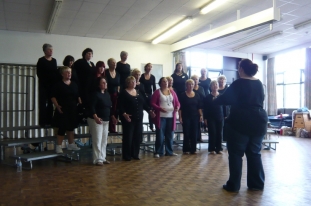There’s been a certain amount of heat coming from under collars in the musical world over the last few days over reports of research that showed that judges in piano competitions appear to be using visual information more than aural in picking winners.
Or, to be more precise, people asked to second-guess judges in piano competitions got the same answers much more reliably by watching silent videos than by either audio alone or video+audio clips. Which isn’t precisely the same thing, but the research sounds like it is robustly enough constructed that one can reasonably draw that conclusion.
Now, the heat has come in the rather predictable form of fulminations about:
- Young performers getting promoted on glamour rather than ability
- How shallow and dumbed down everything is getting with all this focus on visual things instead of the Music Itself
- How nobody ever listens properly any more
Which is interesting in all kinds of ways, not least that all these points, except possibly the last one, are at best tangential if not completely irrelevant to the research. But they do help reveal why the research is proving so disturbing.




